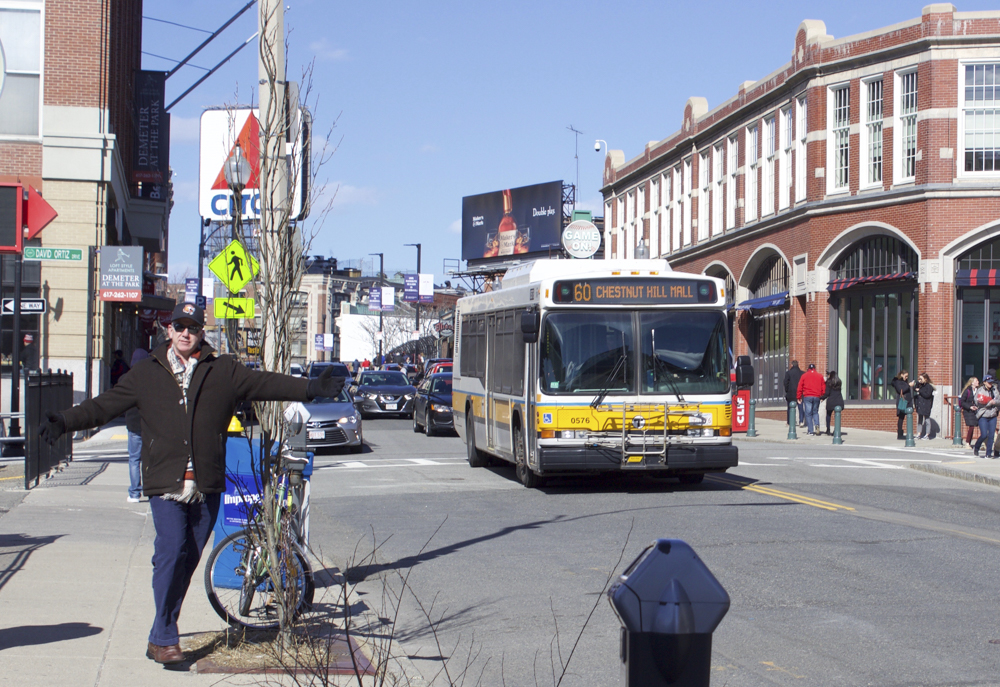
The City of Boston has not raised its parking ticket fines in 10 years — until now.
Boston Mayor Martin Walsh announced Monday that he will allocate $5 million to improve infrastructure in the city as part of a new transportation plan for the upcoming fiscal year.
The plan’s investments will be funded through an increase in parking fines in an effort to reduce congestion, decrease emissions and increase structure on Boston’s streets, according to a press release from Walsh’s office.
City Councilor Michelle Wu said in the release that these investments will hopefully minimize this reality by implementing more protected bike lanes, new traffic signal technology, safer streets and intersections and better bus transit.
Samuel Tyler, president of the Boston Municipal Research Bureau, an independent research organization, said improving bus transit, which will include a “Transit Team” that will work with city officials to implement better travel strategies, will be crucial going forward.
“A much larger percentage of those who live and work in Boston use bus transportation to get where they want to be, so it does make sense for the city to figure out what they can do to make bus transportation more efficient,” Tyler said. “But, Boston has certainly been doing more to improve the traffic flow and making it easier for people to get around.”
Because Boston does not have a grid pattern, Tyler said improving transit becomes more challenging.
“It’s never going to be easy,” Tyler said. “I think there’s a number of steps that have to be taken, even though they’re not major, they can make a difference.”
The proposed transit plan aims to improve the efficiency and reliability of public transit. It is a small part of a bigger initiative launched by Walsh last year called Go Boston 2030, which envisions a more sustainable and efficient transportation system for the Commonwealth by the year 2030.
Brendan Smith, 18, of Brighton, said he regularly takes public buses to school and has experienced extreme wait times and delays.
“It takes me an hour and a half to two hours to get to school, depending on bus routes,” Smith said. “There’s a lot of people in Boston and you can’t really change that, but the buses run so slow.”
The increase in parking fines, while chiefly meant to raise the money necessary to fund this plan, is also intended to dissuade drivers from parking infractions which will reduce congestion and carbon emissions, increase cleanliness and improve residents’ and patrons’ parking experience, according to the release.
The fine for double parking in Boston is currently $45 for Zone A — which is bordered by the Waterfront and Massachusetts Avenue — and $30 for Zone B — the rest of the residential areas — and is recommended to be increased to $75 and $55 respectively.
Of the $5 million going into infrastructure investments, $2 million will be allocated to improving street surfaces and sidewalk repairs. Wealthier parts of the city, like Back Bay, have better and safer walking conditions overall when compared to neighborhoods like Roxbury and Dorchester, according to the City’s assessment of sidewalk conditions.
In addition to improving walking facilities, $300,000 will be devoted to a bike network program that will build high quality cycling infrastructure.
Andrew McFarland, the community engagement manager for LivableStreets Alliance, a public advocacy organization that focuses on creating more accessible streets in Boston, said while the City does not typically prioritize bus transit as it should, he’s glad this plan puts more of an emphasis on improving bus transportation.
“We could get more out of our bus system by just running the streets better, so it’s a question of city efficiency,” McFarland said. “These people are looking to take the bus, but they just can’t depend on the bus.”
While Walsh’s blueprint will have an adverse effect on some drivers, McFarland said it will encourage walking, biking and the use of public transportation which will contribute to a safer infrastructure.
“The status quo right now is that we’re seeing a lot of congestion, and we have to find a way to balance that,” he said. “We have to find better ways of investing in [these modes of transportation] which has less of an impact on our health and also helps improve our mobility as a society.”
Conor Harrington, 24, of Allston, said she’s excited for an improved transit system because taking the public bus to and from work is one of the worst parts of her day.
“It was so unreliable,” Harrington said. “I don’t have a car, I’m completely reliant on public transportation so I’d love to see some improvements.”




















































































































